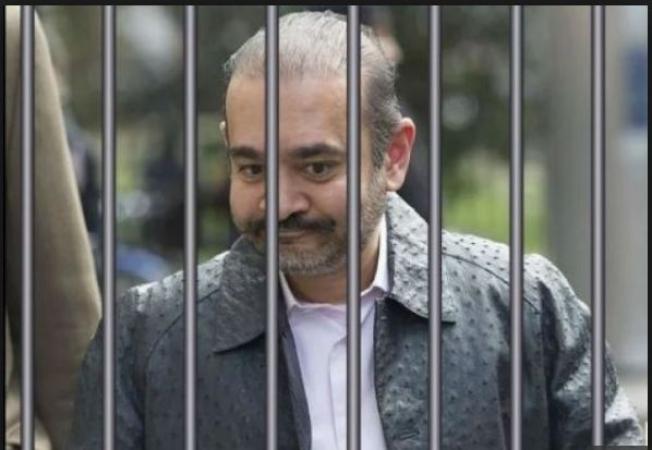
London: Fugitive diamantaire Nirav Modi will remain in jail as a United Kingdom court on Friday rejected his bail plea again. The Westminster Magistrates' Court extended his custody till May 24. Nirav Modi, who is an accused in the USD 1-billion Punjab National Bank (PNB) fraud and money laundering case, appeared before a judge via video link from the jail. On March 29, Modi's bail was rejected by Chief Magistrate Emma Arbuthnot on the grounds that there was a "substantial risk he would fail to surrender". "This is a case of substantial fraud, with loss to a bank in India of between USD 1-2 billion. I am not persuaded that the conditional bail sought will meet the concerns of the government of India in this case," Judge Arbuthnot noted in her ruling.
also read Hashim who played a key role in Srilanka bomb blasts died in hotel attack: Maithripala Sirisena
Arbuthnot is the same judge who ordered the extradition of former Kingfisher Airlines boss Vijay Mallya last December. Appearing on behalf of the Indian authorities, the Crown Prosecution Service (CPS) had opposed Modi's bail. "There is a real risk that he could flee, interfere with witnesses, interfere with evidence," the prosecution had said.
Modi can make a third bail application at Westminster Magistrates’ Court but only if the grounds for the bail plea are substantially different. Previously, Modi’s legal team, including solicitor Anand Doobay and barrister Clare Montgomery, had offered 1 million pounds as security alongside an offer to meet stringent electronic tag restrictions on their client’s movements, "akin to house arrest".
also read Three major explosions at Tata Steelworks; two casualties reported
During the course of the hearing last month, it emerged that Modi had made death threats to witnesses and also attempted to destroy evidence such as mobile phones and a server holding “material critical to the fraud”. His defence team, the same as that deployed by former Kingfisher Airlines boss Vijay Mallya in his extradition case, denied the allegations and said their client saw the UK as a “haven where his case will be fairly considered”.